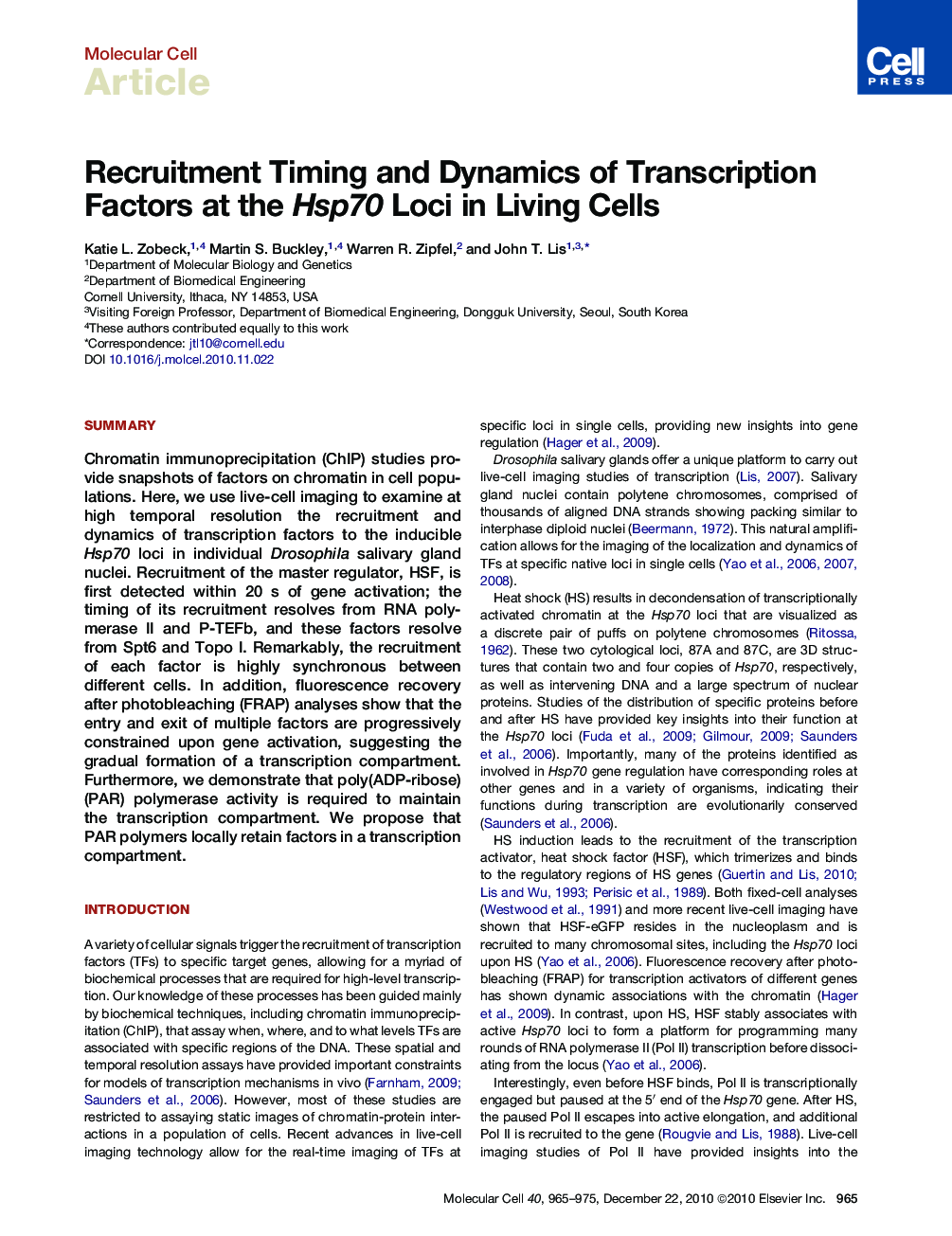| کد مقاله | کد نشریه | سال انتشار | مقاله انگلیسی | نسخه تمام متن |
|---|---|---|---|---|
| 1996705 | 1541539 | 2010 | 11 صفحه PDF | دانلود رایگان |

SummaryChromatin immunoprecipitation (ChIP) studies provide snapshots of factors on chromatin in cell populations. Here, we use live-cell imaging to examine at high temporal resolution the recruitment and dynamics of transcription factors to the inducible Hsp70 loci in individual Drosophila salivary gland nuclei. Recruitment of the master regulator, HSF, is first detected within 20 s of gene activation; the timing of its recruitment resolves from RNA polymerase II and P-TEFb, and these factors resolve from Spt6 and Topo I. Remarkably, the recruitment of each factor is highly synchronous between different cells. In addition, fluorescence recovery after photobleaching (FRAP) analyses show that the entry and exit of multiple factors are progressively constrained upon gene activation, suggesting the gradual formation of a transcription compartment. Furthermore, we demonstrate that poly(ADP-ribose) (PAR) polymerase activity is required to maintain the transcription compartment. We propose that PAR polymers locally retain factors in a transcription compartment.
Graphical AbstractFigure optionsDownload high-quality image (314 K)Download as PowerPoint slideHighlights
► HSF is rapidly recruited to the Hsp70 loci, followed sequentially by other factors
► Transcription factors are each recruited synchronously to the Hsp70 loci
► FRAP analysis reveals a “compartment” of transcription factors at Hsp70
► PARP's catalytic activity is required for maintenance of the “compartment”
Journal: - Volume 40, Issue 6, 22 December 2010, Pages 965–975